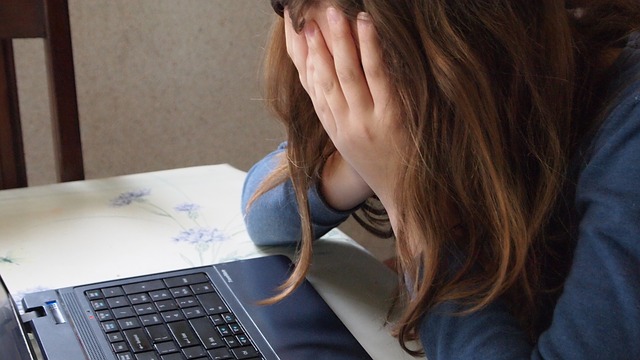Fatigue is a continual and relentless form of exhaustion. There is, of course, a connection between sleep, aging, and feelings of tiredness. However, your energy levels don’t automatically drop purely from a lack of sleep or because of your age. The truth is that there’s a multitude of factors that could be making you feel worn out during your day to day routine.
Your emotional and physical energy can even drain by everyday factors that you overlook. Let’s check out some probable reasons for being tired all the time.
Poor Sleep Quality

Getting 7 to 8 hours of sleep each night is not going to do much for you if those hours are of poor quality! Maybe your dog keeps waking you up because he wants you to take him outside. Perhaps your partner snores, even if they don’t know it. Whatever the reason, if you’re being woken up over and over throughout the night, you may be missing out on the restorative sleep your body needs. That’s because the body’s sleep stages operate in cycles.
Sleep researchers suggest that REM sleep helps our brains to hold onto and strengthen memory, while ‘slow brain wave sleep’ contributes to tissue repair. Thus, interrupting these cycles can negatively affect sleep’s restorative abilities.
Poor Diet

Our bodies use the foods we eat as energy. That’s why a healthy and varied diet is so vital for our overall health. If you eat unhealthy food or don’t get the nutrients your body needs, then you won’t have adequate energy to help you through the day. Essentially, making a habit of having a poor diet is like filling a sports car with cheap, low-quality fuel. The car won’t be able to reach its full potential. So think of nutrition as fuel; if you rely on low-quality food, you can only hope for subpar energy levels.
Take a closer look at your diet. If you lean more toward processed foods and skip over fresher whole foods with higher nutritional content, it could easily be a reason For Being Tired.
Being Overweight

Being overweight can also be linked to tiredness. Your body uses energy to move, and the more weight it has to move, the higher the level of energy expended – even in a simple task such as walking up the stairs. If you are on the heavier side, you can increase your body’s energy levels by committing to a safe and sustainable plan to lose weight.
Start slow, with low-intensity exercise. Try going for walks or take up swimming. Over time as your stamina improves, you can even add more activities. You should also take a closer look at your diet:
Ditch the junk food and lower your sugar intake. Instead, try and eat more fruit and vegetables to go with your healthier lifestyle. Not Eating Enough Calories Just as overeating can have adverse effects, ‘under-eating’ can also lower your energy levels. If you eat too few calories, your body goes into ‘survival mode’ where it slows your metabolism to preserve the energy you DO have. A side-effect of this is feeling fatigued.
Many aspects, from your age to your height, influence the number of calories your body needs. But in general, at least 1,200 calories a day is required to stop your metabolism from slowing down. Although our metabolisms naturally slow down as we age, experts say that older people might need to consume their ‘upper-calorie’ range so they can operate in day to day life without feeling overtired.
Another problem with under-eating is that it’s challenging to get the vitamins and minerals your body needs. Not getting enough vitamin D, B12, iron, and other essential nutrients can undoubtedly lead to fatigue. Even if you’re trying to lose weight, try not to lower your calories drastically – as it will only leave you feeling worn-out and exhausted.
Food Sensitivities
Food sensitivities or intolerances can have many effects. You could experience rashes, issues with digestion, or headaches. However, one symptom that most people don’t consider is fatigue. Research even suggests that the overall quality of life could be influenced by fatigue in people who have food sensitivities.
Gluten, dairy products, and eggs are associated with food intolerance for many. If you think your diet is one of the causes of being tired, get in touch with an allergist or a dietician. They can test you for food sensitivities; or put you on an ‘elimination diet’ to determine which food might be causing you issues.
Dehydration
Just like nutrition, hydration is critical when it comes to energy. Losing as little as one percent of your body weight in water can affect the rate your muscles tire at, and how focused your mind is.
Water circulates through the body in the form of fluids that perform various functions. They deliver oxygen and nutrients to our cells and remove waste materials. Therefore, a lack of water in your body undermines the function of each cell.
Traditionally, doctors relied on a patient’s weight to calculate how much water they should drink, but many factors affect your water intake – from your diet to humidity. Instead of aiming for a certain number of cups a day, keep an eye on your urine. If it’s light pale or clear, that means you are well hydrated. While a darker color means you need to drink more water.
Depression Or Anxiety
Feelings of depression and anxiety don’t just have an emotional impact but influence the body too. Those who suffer from depression can have subpar energy levels, which may be due to an irregular sleep schedule, avoidance of physical activity or just a lack of motivation to even run simple errands.
Anxiety burns through energy, as stress and self-doubt take over. Add to that the energy needed to operate every day, and you’re at a disadvantage. Chronically elevated cortisol is connected to chronic stress, and also steers you toward fatigue.
As your blood pressure and heart rate rise, you do feel more focused or hyperaware when dealing with stress. However, with chronic stress, this awareness extends and turns to fatigue as your body burns up energy and releases more cortisol.
Too Much Caffeine
Most people think of coffee or tea as a great way to start the day, but you can quickly develop a dependency that can lead to feelings of withdrawal – you won’t feel quite ‘right’ until you’ve had enough of your drink of choice.
What’s tough is these feelings always hit hardest in the morning time! Furthermore, when you consume caffeine, it circulates in your system for hours; hence you shouldn’t have any close to bedtime because it impedes proper REM sleep – making you weary the next day.
Medications
Other medications, such as those used to treat anxiety, can result in fatigue and may even induce depression in some users – making it worse. Drugs like Xanax inhibit activation and excitement, meaning that you could feel more mellow, but you could also get sleepy.
A comparable result comes from Alcohol or Marijuana. You can get a buzz or high at first, but more often than not, this falls away to extreme fatigue. Regular substance use is more likely to increase fatigue.
Too Much Computer use

if you’re someone who sits in front of a computer screen all day, it could be one of the reasons for being tired. The American Optometric Association says, ‘Computer Vision Syndrome’ is the outcome of extended computer use, which presents itself in the form of headaches, blurring of vision, and you guessed it: fatigue.
So, to help reduce the strain on your eyes, make sure that for every 20 minutes you spend looking at your screen, look away for 20 seconds and focus on an object 20 feet away.
Too Much Exercise
Exercise is supposed to help you feel better – and if you’re doing it right, it will. But if you overexert yourself, then you’re making your adrenal glands work overtime, producing more cortisol than is necessary. This overexertion will only lead to fatigue, which can make your workouts grind to a halt for days.
On a scale from 1 to 10, your exercise exertion should be about 6 or 7. It’s enough to be effective without risking burnout. Listen to your body and know your limits. If you’re having trouble carrying out your routine, you might be pushing yourself too hard! Everyone indeed has days that wear them out. But seeing the difference between tiredness and ongoing fatigue is crucial. In most cases, you can easily overcome fatigue:
- Focus on restorative sleep
- Avoid stress
- Drink more water.
Sometimes though, it’s not so simple, and fatigue can be a sign of a deeper issue. Perhaps the real reason for your feelings of fatigue could be an unknown health problem, such as narcolepsy or sleep apnea.
If you’ve altered your lifestyle and see no change, or if you start feeling worse, get in touch with a physician. They will take a look at your family history of medical conditions, perform a physical exam, and order any blood work needed to begin looking for causes that’s may be the reason for being tired all the time.
What do you think about this list of reasons for being tired? Did you see yourself in any of these points? If so, are you going to make the necessary changes? If you found this POST helpful, share it with your friends, so we can keep making them.
Follow us on Pinterest: https://www.pinterest.com/interestingpsychology/
Follow us on Facebook: https://web.facebook.com/InterestingPsychologyfact/



